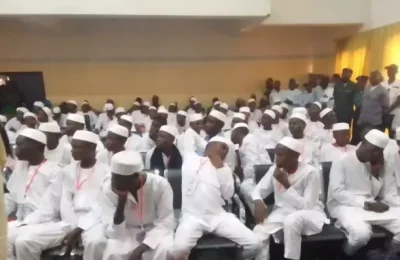Thousands of students across Canada are protesting the Justin Trudeau government’s recent decision to limit study permits and reduce permanent residency nominations.
This backlash comes as over 70,000 international student graduates face the threat of deportation due to recent changes in federal immigration policies.
On Monday, Canadian Prime Minister Justin Trudeau also announced plans to cut the number of temporary foreign workers in low-wage positions.

The move follows significant changes made in 2021, when the Post-Graduation Work Permit (PGWP) program was abolished.
Last year, the federal government imposed a two-year cap on international student visas. By 2023, international students represented 37 percent of study visa holders in Canada, exacerbating existing issues related to housing, unemployment, and other services. With the new cap, the government anticipates a 35 percent reduction in the intake of foreign students.
In response, the Canadian government announced in June that foreign nationals can no longer apply for a PGWP at the border.
Protests are now unfolding nationwide, with international students establishing encampments and organizing rallies in various provinces, including Prince Edward Island, Ontario, Manitoba, and British Columbia.

The protests have gained momentum as students challenge the new provincial policies that have led to a 25% reduction in permanent residency nominations.
Representatives from the Naujawan Support Network, a student advocacy group, have raised alarms that many graduates could face deportation when their work permits expire at the end of the year.
The situation has become increasingly urgent as the new policies have left many students unexpectedly vulnerable.
ALSO READ:Illegal revenue collection: Police arrest several suspects in Enugu, Ebonyi axis
“I spent six years taking risks to come to Canada. I studied, worked, paid taxes, and earned enough Comprehensive Ranking System (CRS) points, but the government has taken advantage of us,” Mehakdeep Singh, a former international student facing deportation, told City News Toronto. Singh, who invested his family’s life savings in tuition, now faces an uncertain future with no guarantee of permanent residency.
Marc Miller, Minister of Immigration, Refugees and Citizenship, announced that foreign nationals can no longer apply for a post-graduation work permit (PGWP) at the border as of June 21.
This decision targets “flagpoling,” a practice where temporary residents exit and re-enter Canada to expedite their work or study permit applications.
The PGWP has been essential for international students seeking employment and permanent residency, with a significant increase in issuances in 2023 compared to 2018.
The recent policy changes have intensified the debate on the future of international students in Canada.







